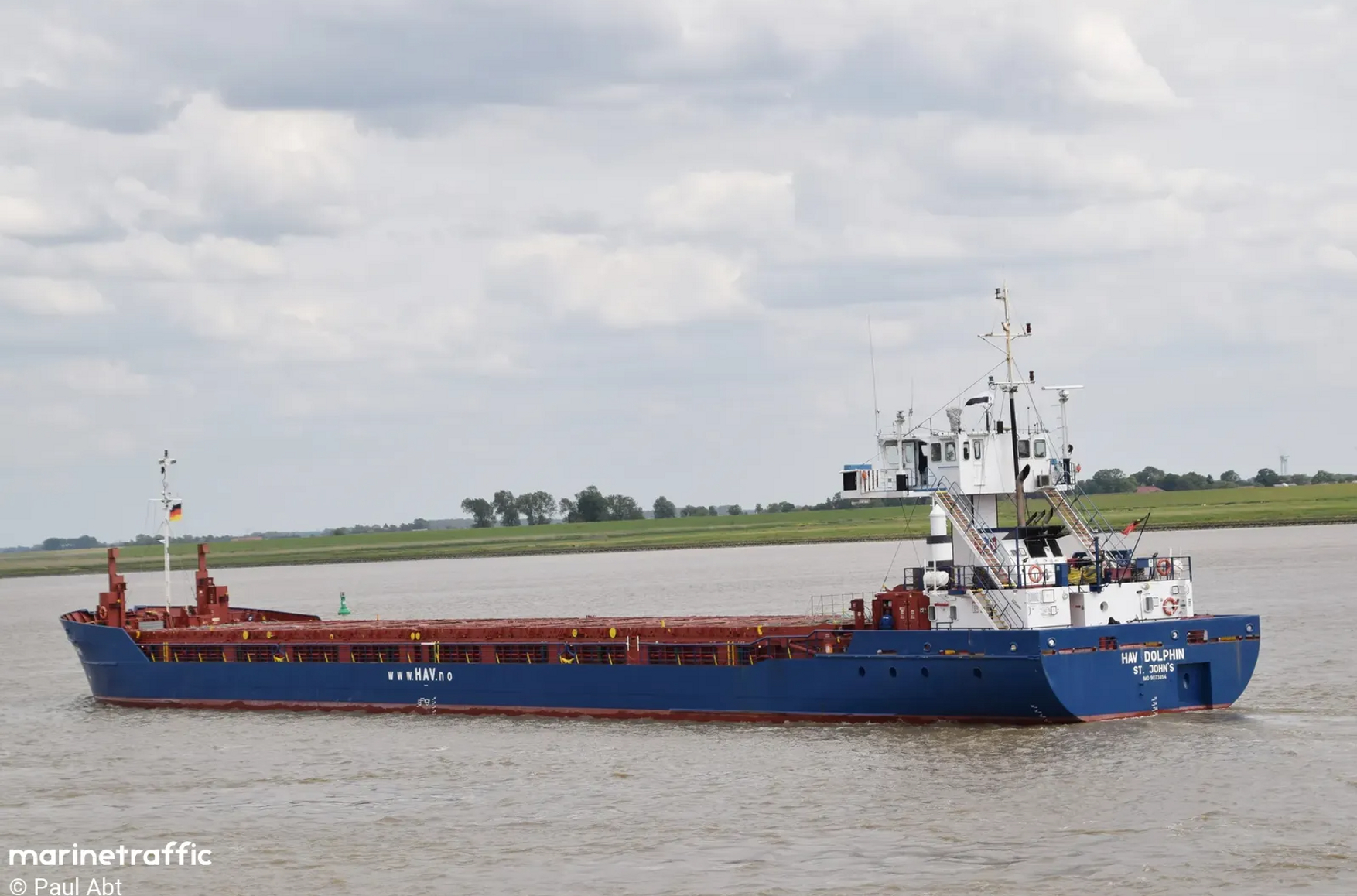
The HAV Dolphin. Photo: Paul Abt / MarineTraffic
European intelligence services have taken notice of the vessel HAV Dolphin (IMO 9073854), which is sailing under the flag of Antigua and Barbuda. The ship is expected to arrive Thursday morning in the Finnish port city of Vaasa. German and Dutch security services suspect the vessel may have been used as a platform for Russian reconnaissance drones, according to a report by Finland's national public broadcasting company Yle.
The HAV Dolphin’s unusual movements have raised suspicions. According to data obtained by The Insider, the vessel left the Russian port of Kaliningrad on April 23, sailed to Liepaja in Latvia, then approached the German city of Kiel on May 1 and dropped anchor for eight days. It then traveled through the Kiel Canal into the North Sea, passed through the English Channel to Spain, and later retraced its route back.

Map: Starboard Maritime Intelligence for The Insider
Such a long anchorage is unusual for a commercial cargo vessel. During the same period, media outlets reported multiple drone sightings near the German Navy submarine base in Eckernförde. German police inspected the HAV Dolphin, and after the ship resumed its journey, the Dutch police, the Dutch national gendarmerie, and customs officials in Rotterdam also carried out checks. No suspicious materials were found. The crew was identified as Russian.
Investigators, however, noted that the ship approached Kiel unusually slowly, which they said could indicate reconnaissance activity. It also dropped anchor in an unusual location.
A security expert interviewed by the investigative project Dossier Center noted that the drones could have easily been thrown overboard, leaving no trace behind.
Dossier Center also reported that the vessel’s owner, Norwegian company Hav Bulk AS, denied the ship had been inspected by police. The company claimed the ship had merely been waiting for a loading order while anchored exactly where the port authority instructed. On May 9, the order was allegedly received, and the HAV Dolphin soon headed to Bremen, Germany.
Two ships and a swarm of drones
This was not the only incident. Two days after the Dutch police searched the HAV Dolphin, a chase took place in the North Sea near the German island of Borkum. The German patrol vessel Potsdam was following the Russian cargo ship Lauga when authorities noticed seven drones circling the area.
After some time, the drones began to follow the patrol vessel directly, forming an unusual procession: the Russian cargo ship sailed in front, followed by the German patrol boat, with a group of drones trailing behind. The scene continued for about three hours before the drones suddenly disappeared. The crew of the patrol vessel was unable to identify the UAVs’ model or to determine whether they had been launched directly from the Lauga.
On May 28, the Lauga arrived in the Belgian port of Zeebrugge, where, at the request of German authorities, it was inspected by local customs officials. No suspicious materials were found. Questioning of the 11 crew members, all Russian citizens, also produced no results.
Despite the lack of evidence, the incident appears to have seriously alarmed German intelligence services. The case was included in a confidential security report reviewed by Der Spiegel, which was the first outlet to report on the episode, without naming the vessel.